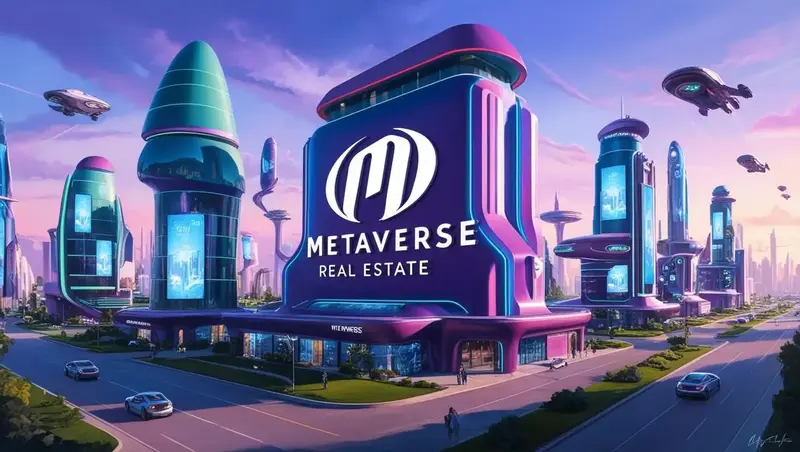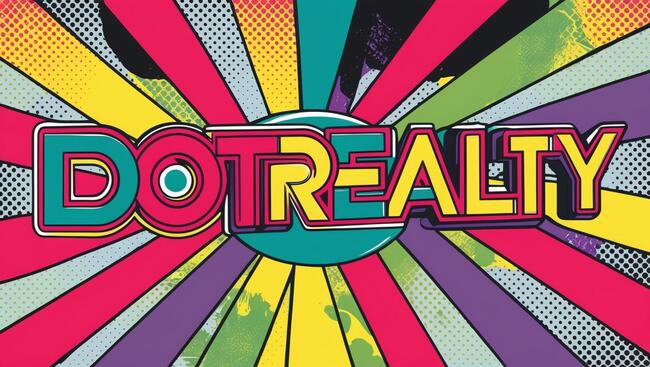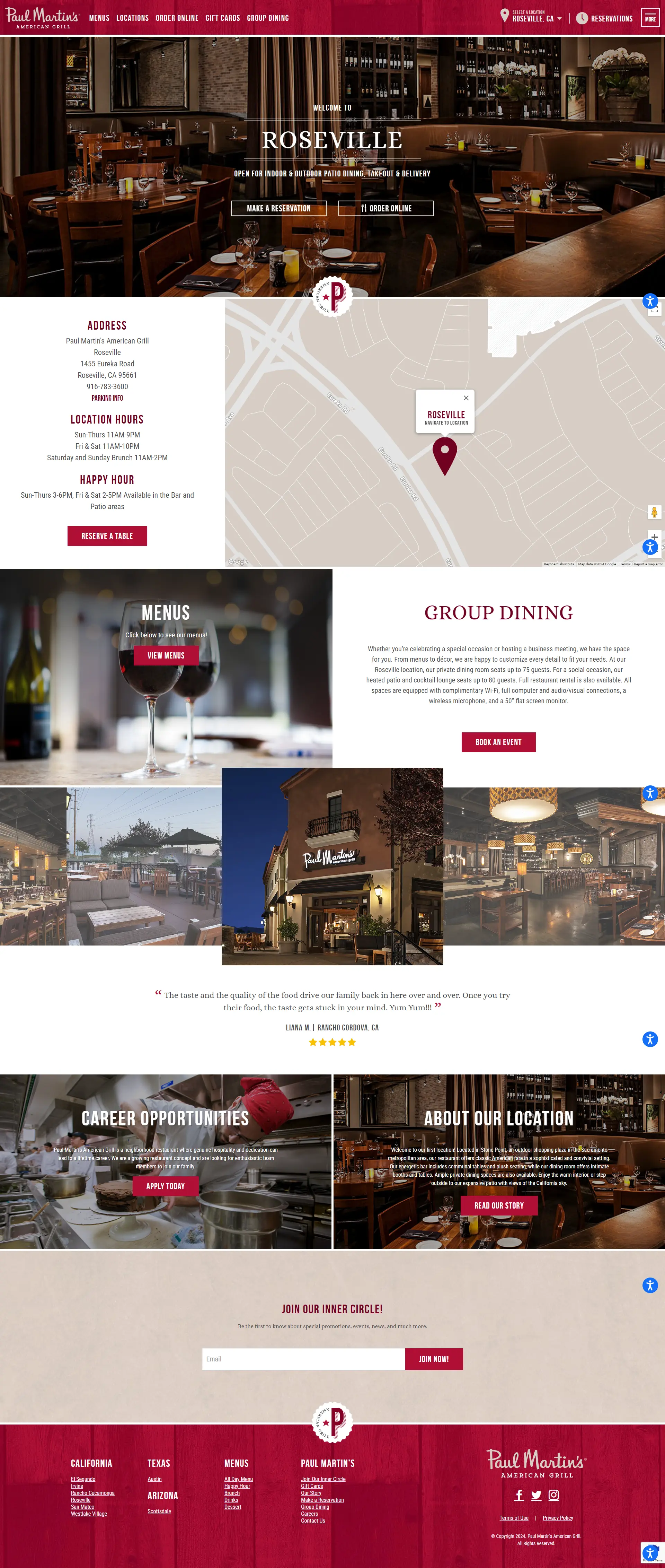Executive Summary
The metaverse is a rapidly evolving network of interconnected virtual worlds that is transforming how we interact, work, and play. This immersive 3D space offers a wide range of opportunities for various industries, including real estate.
Key players like Meta, Microsoft, NVIDIA, Decentraland, and The Sandbox are driving the development of the metaverse, each with its own unique platforms and offerings.
The metaverse offers a variety of experiences, from social interaction and entertainment to commerce, education, and art. In the real estate sector, the metaverse enables virtual property ownership, immersive property viewings, and new business models for agents and developers.
While the future of the metaverse holds both exciting possibilities and challenges, staying informed and embracing its potential is crucial for real estate professionals who want to stay ahead of the curve.
Introduction
Imagine a world where you can attend a concert, visit an art gallery, or even tour a potential new home without ever leaving your living room. This is the promise of the metaverse, a persistent, shared, 3D virtual space that is rapidly changing how we interact, work, and play.
While the concept might seem like something straight out of science fiction (and it partly is, with origins in Neal Stephenson’s 1992 novel Snow Crash), the metaverse is quickly becoming a reality. Major tech companies like Meta, Microsoft, and NVIDIA are investing heavily in its development, and industries from gaming and entertainment to education and healthcare are exploring its potential.
One sector poised for significant disruption is real estate. The metaverse offers exciting new possibilities for buying, selling, and experiencing property, opening up a world of opportunities for agents, brokers, developers, and investors alike.
This article will serve as your guide to the metaverse, exploring its key players, its potential applications, and its implications for the future of real estate.
Key Players in the Metaverse
The metaverse is not a single entity but rather a network of interconnected platforms and virtual worlds. Several key players are driving its development, each with its own unique focus and offerings:
- Meta (formerly Facebook): Meta has made the metaverse a central part of its vision for the future. Its Horizon Worlds platform is a social VR experience where users can create avatars, explore virtual environments, and interact with others. Meta’s investment in VR technology, particularly through its Oculus headsets, is also crucial in making the metaverse more accessible.
- Microsoft: Microsoft is taking a more enterprise-focused approach to the metaverse with its Mesh platform. Mesh enables mixed reality experiences for collaboration and remote work, allowing users to interact with holograms and shared virtual spaces. Microsoft’s integration of Mesh with existing products like Teams and Azure further strengthens its position in the metaverse landscape.
- NVIDIA: NVIDIA is a leader in graphics processing units (GPUs), which are essential for creating realistic and immersive virtual environments. Its Omniverse platform provides tools for 3D design collaboration and simulation, enabling creators and developers to build and connect virtual worlds. NVIDIA’s focus on creating the infrastructure for the metaverse is crucial for its long-term development.
- Decentraland: Decentraland is a decentralized, user-owned virtual world built on the Ethereum blockchain. Users can buy, sell, and develop virtual land, represented as NFTs, and create experiences like games, art galleries, and virtual events. Decentraland’s emphasis on user ownership and community governance sets it apart from more centralized platforms.
- The Sandbox: The Sandbox is another user-generated content platform with a focus on gaming and entertainment. Its voxel-based world allows users to create and monetize games and experiences using intuitive tools. The Sandbox has attracted significant investment from major brands and celebrities, further fueling its growth.
- Other Notable Players: The metaverse landscape is constantly evolving, with new platforms and technologies emerging all the time. Other notable players include Somnium Space, which focuses on realistic virtual environments; Cryptovoxels, a blockchain-based virtual world with a focus on social interaction; and Axie Infinity, a popular play-to-earn game with a thriving virtual economy.
What the Metaverse Offers
The metaverse offers a wide range of experiences and opportunities that go beyond gaming and entertainment:
- Social Interaction: The metaverse provides new ways to connect with people, regardless of physical location. Users can create avatars, attend virtual events, join communities, and build relationships in immersive 3D environments. This has implications for social gatherings, remote work, and even online education.
- Entertainment and Gaming: The metaverse is a playground for immersive gaming experiences. Users can explore vast virtual worlds, participate in multiplayer games, attend virtual concerts and events, and interact with digital content in entirely new ways.
- Commerce and Business: The metaverse is opening up new opportunities for businesses to connect with customers and conduct commerce. Virtual storefronts, virtual events, and immersive product demonstrations are just some of the ways businesses are leveraging the metaverse to reach new audiences and generate revenue.
- Education and Training: The metaverse can create immersive learning environments for various industries. From virtual field trips and simulations to interactive training programs, the metaverse offers the potential to revolutionize education and professional development.
- Art and Creativity: The metaverse provides a new canvas for artistic expression. Digital artists can create and showcase their work in virtual galleries, and users can experience art and culture in immersive 3D environments. The metaverse is also fostering new forms of creative collaboration and community building.
The Metaverse and Real Estate
While still in its early stages, the metaverse is already making waves in the real estate industry. It’s not just about futuristic visions anymore; real-world applications are emerging that are changing how we buy, sell, and experience property.
Virtual Property Ownership
One of the most talked-about aspects of the metaverse is the concept of virtual property ownership. Just like in the physical world, users can buy, sell, and develop virtual land and buildings in various metaverse platforms. These digital assets are typically represented as NFTs (non-fungible tokens) on a blockchain, providing verifiable ownership and scarcity.
- Investment and Development: Investors are purchasing virtual land with the expectation that its value will appreciate as the metaverse grows. Developers are creating virtual neighborhoods, commercial spaces, and even entire cities within these digital worlds.
- Examples: Republic Realm, a metaverse investment firm, purchased a plot of virtual land in The Sandbox for a record-breaking $4.3 million in 2021. Similarly, Metaverse Group, a subsidiary of Tokens.com, acquired a parcel of land in Decentraland’s Fashion Street district for $2.4 million.
Immersive Property Experiences
The metaverse offers incredible opportunities to enhance the way we experience property. VR and AR technologies can create immersive and interactive tours that go far beyond traditional photos and videos.
- Virtual Tours and Open Houses: Imagine walking through a potential new home from the comfort of your couch, exploring every room and detail in a realistic 3D environment. Virtual open houses can also be held in the metaverse, allowing potential buyers from around the world to attend.
- Virtual Staging and Design: Instead of physically staging a property, real estate professionals can use virtual staging tools to showcase different furniture arrangements and design styles in the metaverse. This can help buyers visualize the potential of a space and make more informed decisions.
- Benefits: Immersive experiences can save time and resources for both buyers and sellers, increase engagement and interest, and provide a more personalized and accessible way to explore properties.
New Business Models
The metaverse is creating new business opportunities for real estate professionals:
- Virtual Property Management: Manage and maintain virtual properties for owners, including renting, leasing, and providing virtual concierge services.
- Virtual Staging and Design Services: Offer specialized virtual staging and design services to help clients showcase their properties in the metaverse.
- Architectural Design in Virtual Worlds: Architects and designers can use the metaverse to create and showcase virtual building designs, allowing clients to experience spaces before they are built.
- Metaverse Marketing and Consulting: Provide expertise and guidance to clients on navigating the metaverse and leveraging its potential for real estate marketing and investment.
Case Studies
Several real estate companies are already experimenting with the metaverse:
- Sotheby’s: The auction house has created virtual galleries in Decentraland to showcase and sell digital art and NFTs.
- eXp Realty: This real estate brokerage has a virtual headquarters in the metaverse where agents can collaborate, attend meetings, and connect with clients.
- Matterport: This company provides 3D capture technology that can be used to create virtual tours of properties for the metaverse.
The metaverse is still a nascent space, but its potential impact on the real estate industry is undeniable. As technology continues to evolve and user adoption increases, we can expect to see even more innovative applications and business models emerge.
The Future of the Metaverse
The metaverse is a rapidly evolving landscape, and its future is full of possibilities. While predicting the exact trajectory is challenging, several key trends and factors will shape its development and impact on various industries, including real estate.
Technological Advancements
Ongoing advancements in technology will be crucial in driving the metaverse forward:
- VR/AR Technology: Improvements in virtual reality and augmented reality headsets will make the metaverse more immersive, accessible, and comfortable for users. Expect to see lighter, more affordable devices with higher resolutions and more natural interactions.
- Blockchain Technology: Blockchain will continue to play a vital role in the metaverse, enabling secure ownership of digital assets, facilitating transactions, and supporting the development of decentralized virtual worlds.
- Artificial Intelligence (AI): AI will power more realistic and interactive virtual environments, personalize user experiences, and enable new forms of communication and collaboration in the metaverse.
- Internet Infrastructure: Faster internet speeds and increased bandwidth will be essential to support the growth of the metaverse and enable seamless experiences for users.
Mass Adoption
While early adopters are already exploring the metaverse, mass adoption will depend on several factors:
- Accessibility and Affordability: As VR/AR devices become more affordable and accessible, more people will be able to participate in the metaverse.
- Compelling Use Cases: The development of engaging and valuable experiences, beyond gaming and entertainment, will be crucial in attracting a wider audience.
- User Experience: A user-friendly and intuitive interface will be essential to encourage widespread adoption.
- Social Acceptance: As the metaverse becomes more integrated into our daily lives, social acceptance and normalization will play a role in its growth.
Challenges and Concerns
The metaverse also faces several challenges and concerns that need to be addressed:
- Interoperability: Currently, many metaverse platforms exist in silos. Greater interoperability between platforms will be crucial for a seamless and connected metaverse experience.
- Security and Privacy: Protecting user data and ensuring a safe and secure environment will be paramount as the metaverse grows.
- Ethical Considerations: Addressing issues like digital identity, virtual crime, and the potential for addiction will be important to ensure a responsible and ethical metaverse.
- Accessibility and Inclusivity: Ensuring that the metaverse is accessible to people with disabilities and diverse backgrounds will be crucial for its widespread adoption.
The Metaverse and the Real World
The lines between the physical and virtual worlds are becoming increasingly blurred. The metaverse has the potential to enhance our real-world experiences in various ways:
- Remote Work and Collaboration: The metaverse can provide more immersive and engaging ways for teams to collaborate remotely.
- Education and Training: Virtual simulations and training programs can enhance learning and skill development in various fields.
- Healthcare: The metaverse can be used for virtual therapy, patient education, and even remote surgery.
- Social Interaction: The metaverse can provide new ways to connect with people and build communities, especially for those who are geographically isolated or have limited mobility.
Conclusion
The metaverse is more than just a buzzword; it’s a rapidly evolving digital frontier with the potential to reshape how we live, work, and interact. For the real estate industry, the metaverse presents a unique set of opportunities and challenges.
From virtual property ownership and immersive property experiences to new business models and marketing strategies, the metaverse is already transforming the way we buy, sell, and experience real estate.
While the metaverse is still in its early stages, its potential impact is undeniable. Real estate professionals who embrace this technology and explore its possibilities will be well-positioned to thrive in the future of the industry.
Key Takeaways:
Real estate professionals should stay informed and explore the opportunities the metaverse presents.
The metaverse is a network of interconnected virtual worlds offering diverse experiences.
Key players like Meta, Microsoft, NVIDIA, Decentraland, and The Sandbox are driving its development.
Real estate in the metaverse includes virtual property ownership, immersive experiences, and new business models.
The future of the metaverse depends on technological advancements, mass adoption, and addressing key challenges.



















